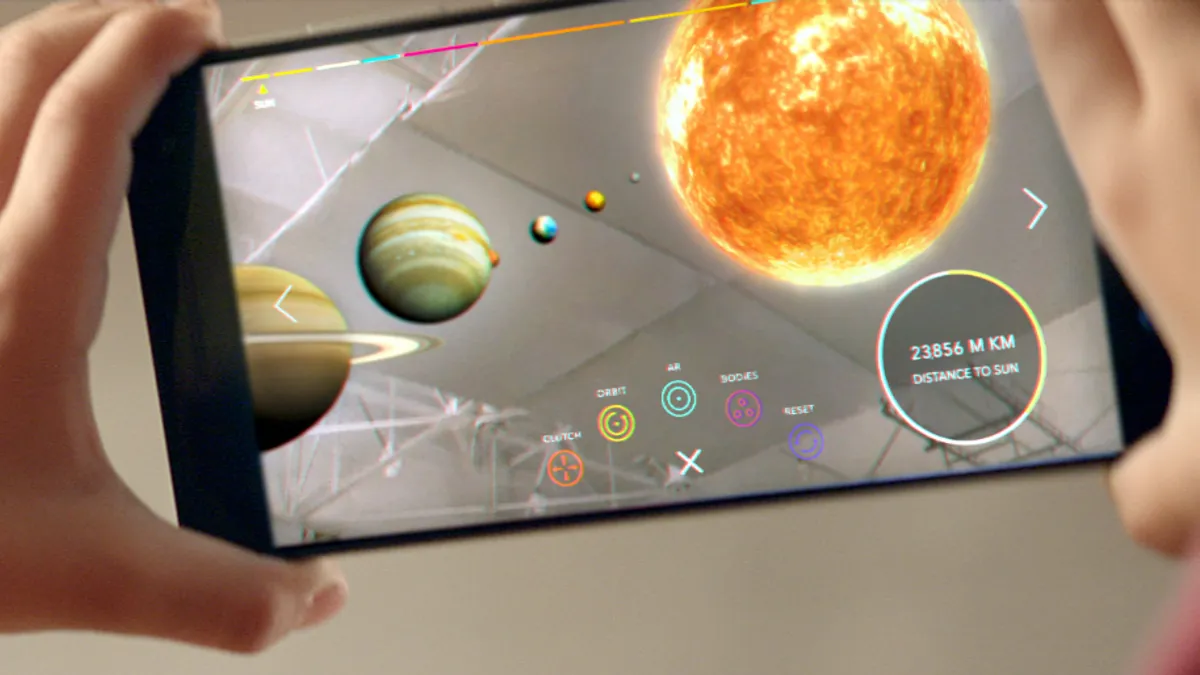Dive Brief:
- Google is using its augmented reality (AR) platform Tango to enhance museum-going experiences via mobile devices, according to a company blog post.
- Tango technology draws on user location data to pinpoint museum displays and then heightens interactivity with virtual overlays. An exhibit showing a closed mummy sarcophagus, for example, can be scanned with a mobile phone to reveal an x-ray of the body inside.
- The Tango AR experiences are first being tested at the Detroit Institute of Arts, which teamed up with the company GuidiGO for a "mobile tour" titled Lumin. Tango plans to expand to more museums around the world in the near future.
Dive Insight:
A museum is a different space than, say, a Macy’s store, but the new Tango offerings point to how Google’s AR technology could be tied to real-world retail marketing, simultaneously tapping virtual image-processing and location-based data. Product displays, like museum exhibits, might be able to be scanned virtually via a mobile device, with supplemental information and descriptions popping up on the screen.
Some brands, including BMW and Gap, showed interest in Tango at last week's CES tech conference, though Bloomberg pointed out that the reach of their 'virtual showrooms' is limited for now.
AR remains a hot marketing item following the Pokemon Go craze last summer, though its broader applications past niche markets like gaming are still being worked out. Tango might help to lay out a more detailed blueprint going forward, especially in its use of location data, which is crucial to catching users during mobile moments and can better hone targeting down to specific aisles inside a store.
Google’s proprietary location data is among the most robust in the industry thanks to widely used apps like Maps. Seventy percent of smartphone users who purchase something in a store use their mobile device for information beforehand and 25% use a map before making a transaction, per Google. AR integrations paired with such location data could further bolster mobile marketing strategies by better taking advantage of a smartphone's native capabilities.
Snap Inc., Snapchat’s parent company, is another digital player that’s hinted at interest in AR-powered retail. In December, the company reportedly acquired the Israeli-based startup Cimagine for up to $40 million. Cimagine, which has worked with brands like Shop Direct and Coca-Cola, owns patent-pending AR technology that enables smartphone users to scan real-world products without the need for a reference marker.















